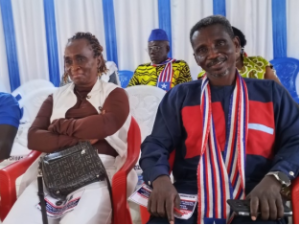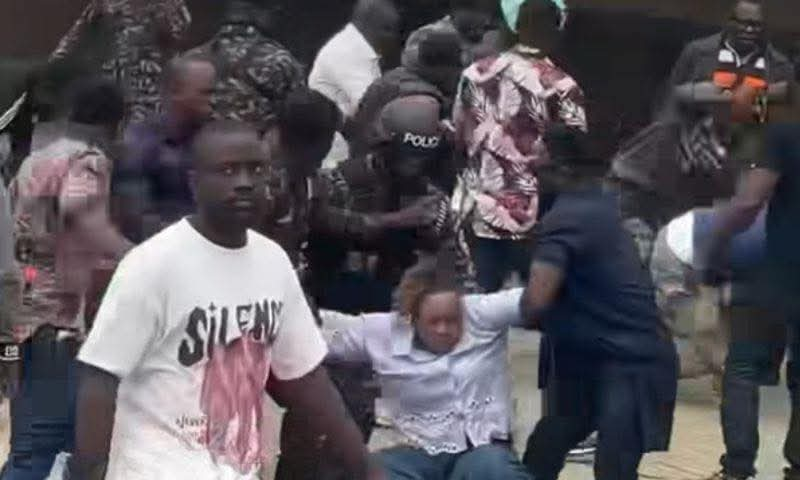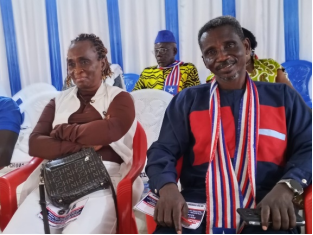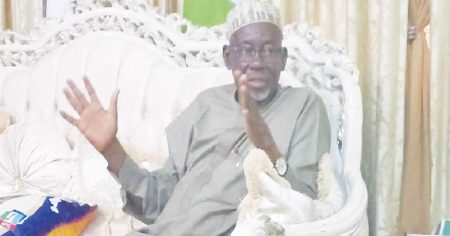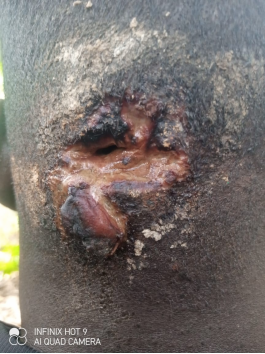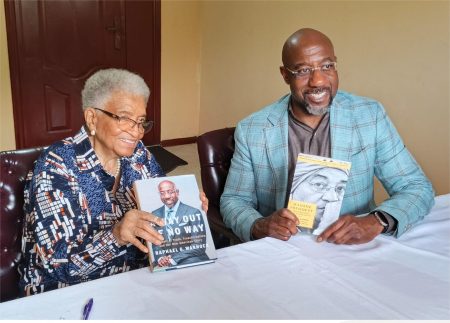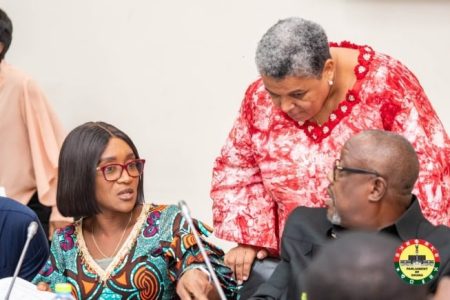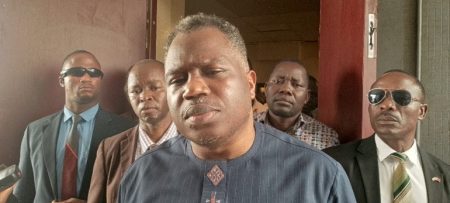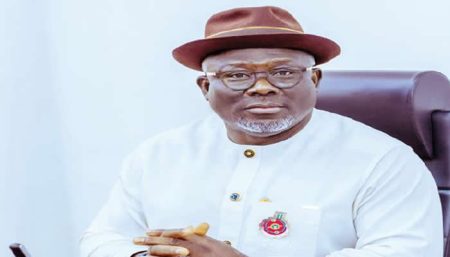The Ablekuma North constituency in Ghana became a flashpoint of political violence during a parliamentary election rerun on Friday, marred by a reported assault on former Fisheries and Aquaculture Development Minister, Mavis Hawa Koomson. The rerun, taking place at 19 designated polling stations including the Odorkor Methodist Church, aimed to resolve a protracted electoral dispute stemming from the December 2024 general elections. Koomson’s arrival at the Odorkor Methodist Church polling station ignited a confrontation with unidentified men, believed to be affiliated with opposing political factions. The already tense atmosphere escalated rapidly as verbal abuse and intimidation directed at Koomson prompted her to deploy pepper spray. This act triggered a violent clash between supporters of the National Democratic Congress (NDC) and the New Patriotic Party (NPP), culminating in Koomson being physically assaulted. Eyewitnesses recount a chaotic scene where Koomson was beaten, kicked, and dragged along the ground before police intervention ultimately secured her safety.
The incident underscores the deep-seated political tensions that have gripped the Ablekuma North constituency since the disputed December 2024 elections. The constituency has been without parliamentary representation for months due to irregularities in the initial vote verification process, necessitating the Electoral Commission’s intervention to conduct a rerun across the 19 affected polling stations. The rerun itself was further complicated by the NPP’s official boycott, a directive defied by their parliamentary candidate, Nana Akua Afriyie. This internal party division, coupled with the existing political polarization within the constituency, created a volatile environment ripe for conflict. The reported assault on Koomson has amplified these tensions, casting a long shadow over the electoral process and raising concerns about the safety and security of individuals involved.
The reported assault on Mavis Hawa Koomson has sparked outrage and condemnation from various quarters, including observers and members of different political parties. The incident highlights the precarious nature of political discourse and the potential for violence to erupt amidst heightened tensions. While the police have yet to issue an official statement regarding the assault or confirm any arrests, the event has brought into sharp focus the need for enhanced security measures and greater accountability from all stakeholders involved in the electoral process. The attack on Koomson is not an isolated incident; it reflects a broader pattern of escalating political violence in Ghana, which demands urgent attention and decisive action to prevent further escalation.
The Electoral Commission’s decision to conduct a rerun in Ablekuma North was intended to address the irregularities that plagued the December 2024 elections and restore faith in the democratic process. However, the events surrounding the rerun, particularly the violence directed at Koomson, have undermined this objective and raised serious questions about the effectiveness of the current electoral framework. The boycott by the NPP leadership, the defiance of their candidate, and the subsequent outbreak of violence have created a complex and challenging situation that requires careful consideration and strategic intervention to mitigate further conflict and ensure a credible outcome. The incident underscores the urgent need for comprehensive electoral reforms to address the root causes of political violence and promote a more peaceful and inclusive political landscape.
The aftermath of the reported assault on Mavis Hawa Koomson presents a critical juncture for Ghanaian democracy. The incident serves as a stark reminder of the fragility of democratic institutions and the importance of upholding the rule of law. The response from law enforcement, political leaders, and civil society organizations will be crucial in determining the course of events and shaping the future of political discourse in the country. A thorough and impartial investigation into the assault is essential to ensure accountability and deter future acts of violence. Furthermore, political leaders must demonstrate a commitment to peaceful dialogue and reconciliation to de-escalate tensions and foster a more constructive political environment.
The rerun election in Ablekuma North, intended to resolve an electoral impasse, has instead become a symbol of the challenges facing Ghanaian democracy. The reported assault on Mavis Hawa Koomson highlights the urgent need for comprehensive reforms to address the root causes of political violence, strengthen electoral processes, and promote a culture of peace and respect for democratic principles. The incident serves as a wake-up call for all stakeholders to prioritize dialogue, reconciliation, and the pursuit of justice to ensure a more stable and democratic future for Ghana. The international community also has a role to play in supporting Ghana’s efforts to strengthen its democratic institutions and prevent further escalation of political violence.



